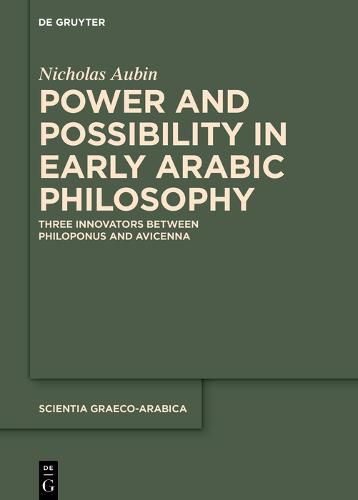Readings Newsletter
Become a Readings Member to make your shopping experience even easier.
Sign in or sign up for free!
You’re not far away from qualifying for FREE standard shipping within Australia
You’ve qualified for FREE standard shipping within Australia
The cart is loading…






This title is printed to order. This book may have been self-published. If so, we cannot guarantee the quality of the content. In the main most books will have gone through the editing process however some may not. We therefore suggest that you be aware of this before ordering this book. If in doubt check either the author or publisher’s details as we are unable to accept any returns unless they are faulty. Please contact us if you have any questions.
"The world is a finite body, and therefore has finite power." John Philoponus is remembered for using this Aristotelian premise to break ranks with Aristotle and argue that the world is not everlasting. This investigation reconsiders Philoponus's arguments from finite power, and then explores the aftermath of this line of thinking in the works of three lesser-known Arabic intellectuals active in the generation before Avicenna (d. 1037): Abu l-?ayr Ibn Suwar (d. after 1017), Abu al-?asan al-?Amiri (d. 992), and Abu Sahl al-Masi?i (d. after 1025). Each engaged with this dictum in unique and novel ways, and in so doing anticipated a number of central features of Avicenna's writings. The history of this argument is of crucial importance for understanding the evolution of natural philosophy and metaphysics in this formative period, away from tedious and simplistic arguments about creation and towards a more robust modal ontology based on intrinsic and extrinsic necessity.
$9.00 standard shipping within Australia
FREE standard shipping within Australia for orders over $100.00
Express & International shipping calculated at checkout
This title is printed to order. This book may have been self-published. If so, we cannot guarantee the quality of the content. In the main most books will have gone through the editing process however some may not. We therefore suggest that you be aware of this before ordering this book. If in doubt check either the author or publisher’s details as we are unable to accept any returns unless they are faulty. Please contact us if you have any questions.
"The world is a finite body, and therefore has finite power." John Philoponus is remembered for using this Aristotelian premise to break ranks with Aristotle and argue that the world is not everlasting. This investigation reconsiders Philoponus's arguments from finite power, and then explores the aftermath of this line of thinking in the works of three lesser-known Arabic intellectuals active in the generation before Avicenna (d. 1037): Abu l-?ayr Ibn Suwar (d. after 1017), Abu al-?asan al-?Amiri (d. 992), and Abu Sahl al-Masi?i (d. after 1025). Each engaged with this dictum in unique and novel ways, and in so doing anticipated a number of central features of Avicenna's writings. The history of this argument is of crucial importance for understanding the evolution of natural philosophy and metaphysics in this formative period, away from tedious and simplistic arguments about creation and towards a more robust modal ontology based on intrinsic and extrinsic necessity.